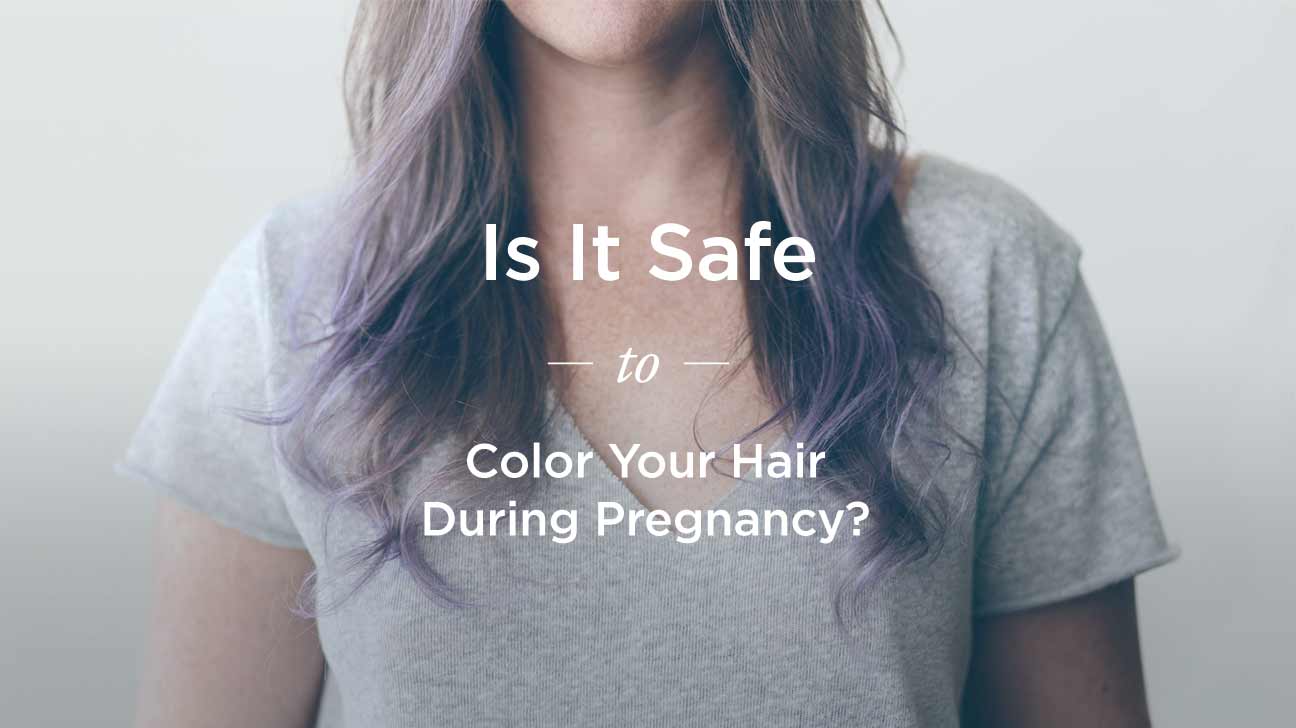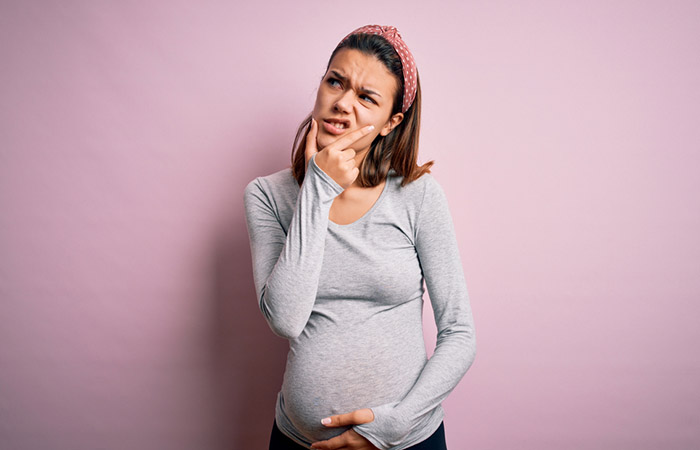Table Of Content

When it comes to hair dyeing, the key is caution and information. So, whenever you have doubts or concerns, seek medical or expert guidance to make informed and safe choices. Although the general consensus is that there is no problem with dyeing your hair while pregnant, even from the first trimester, if you are genuinely concerned, we recommend waiting until after week 12.
What Are Your Go-To Healthy Snacks?
Some even recommend waiting until after your baby is born in high-risk pregnancies. Applications such as highlights and hair painting pose even lower risks because the color is applied only to the hair, not the scalp. The bleach does penetrate your skin, but not to a degree that most doctors would consider harmful,” says Dr. Zanotti. However, not all of these hair dyes are equally safe for use during pregnancy.

Find more top doctors on
Bleach is considered as safe to use during pregnancy as hair dye, but, similar to the other dyes, Reavey still recommends waiting until after the first trimester. Plus, she and Ross recommend taking extra precaution to ensure the product isn’t directly applied to the scalp. “During pregnancy, your skin is often more sensitive to new ingredients, so prolonged exposure to the scalp/skin can cause irritation,” Reavey says. Hair dye is generally safe during pregnancy, but there’s no harm in being cautious. If you’re concerned about potential harmful effects, choose gentler hair treatments to minimize your exposure to chemicals. Though natural hair dye treatments are great in many ways the drawback is that some are not as permanent as chemical hair dyes.
Mom-to-be tress stress? Here’s the truth about hair dye and pregnancy - TODAY
Mom-to-be tress stress? Here’s the truth about hair dye and pregnancy.
Posted: Tue, 03 Mar 2015 08:00:00 GMT [source]
Can You Highlight or Balayage Your Hair During Pregnancy?
Many keratin hair treatments have formaldehyde in them, which can cause cancer. If your heart is set on getting a Brazilian blowout, ask your hair stylist to use a formula without formaldehyde. Complete a patch test on your skin before putting the henna in your hair. If there is a black stain, this indicates added chemicals and you shouldn’t use the product.

Are relaxers and perm solution safe during pregnancy?
Pregnant? Expert advice on when it's OK to dye your hair - TODAY
Pregnant? Expert advice on when it's OK to dye your hair.
Posted: Mon, 19 Sep 2016 07:00:00 GMT [source]
Studies have shown varying results, but there have been links between increased risk of breast cancer and frequent use of hair dye. Hair dye is generally considered safe while you are pregnant if you follow guidelines and precautions. Since no one knows the exact risks, though, many sources recommend waiting until after pregnancy to be safe. It’s hard to keep track of everything you should or shouldn’t do when you’re pregnant. If you aren’t sure if something is safe, don’t be afraid to ask your healthcare provider. And during pregnancy, all those hours coloring and cutting hair can be even more exhausting.
When can I dye my hair while pregnant?
However, there is not a lot of data on hair dye use during pregnancy and the data we do have doesn’t prove hair dye to be safe during pregnancy either. The best and safest kind of hair dye to go for are plant-based or organic dyes. These will be a lot more gentle on your skin, and are particularly ideal if you suffer from dry or irritated scalp. These might be a good alternative to switch to during your pregnancy. A salon service you should definitely avoid while pregnant is chemical hair straightening treatments like relaxers, which have been linked to uterine cancer and other risks. Most hair dyes contain chemicals, but your scalp doesn't absorb much of the hair dye, especially if you have a healthy scalp.
Hannah Natural 100% Pure Henna Powder
The NHS states that only a very small amount of the chemicals in hair dye will enter the bloodstream. As a result, a person will not be able to pass on a significant amount through breast milk. A person can also reduce exposure to chemicals by highlighting their hair rather than dyeing it.
“Many doctors recommend holding off on hair color until week 13 of your pregnancy, just to be safe,” Dr. Zanotti reports. Ob/Gyn Salena Zanotti, MD, dives into hair dye, pregnancy and its effects on fetal development. Needless to say, pregnancy doesn't disqualify you from boredom, nor the urge to make a big beauty change.
Information provided on Forbes Health is for educational purposes only. Your health and wellness is unique to you, and the products and services we review may not be right for your circumstances. We do not offer individual medical advice, diagnosis or treatment plans. To be extra cautious, you can wait to color your hair until your second trimester, after the critical stages of your baby's organ development are complete. Bleaching your hair includes the use of hydrogen peroxide and may be used in conjunction with other types of hair coloring. They may be composed of lye (sodium hydroxide) or no-lye (potassium, lithium, or guanidine hydroxide) solutions.
Ask your doctor before dyeing your hair to avoid unwanted side effects. When it comes to “natural” hair dyes, they may be better for the environment but still contain some chemicals and aren’t necessarily safer to use than other hair coloring products during pregnancy. To minimize any reactions to the hair dye that could harm you or your baby, do a patch test first, even if it’s a brand and/or color you’ve used before. Sometimes, the changes in hormones during pregnancy can affect your sensitivity to certain chemicals. You may also want to wait until the second trimester to dye your hair, and make sure to consult with your doctor.
Although the chemicals in permanent and semi-permanent hair dyes may cause harm, this is only in very high doses. When you use hair dye, you are only exposed to very low amounts of these chemicals. If you’re having your hair dyed in a salon, tell your hair stylist about your pregnancy right away. “As long as you’re going to an accredited salon that has a well-ventilated space and takes proper safety precautions, there should be no cause for alarm,” says Dr. DiSabatino. Even if you’re not pregnant, you should take these same precautions.
However, the small amount of chemicals absorbed should not be harmful. It raised a few eyebrows; we've all heard mixed advice on whether or not it's OK to bleach and/or dye your hair while expecting. According to the experts, the answer isn't a straightforward yes or no.
If you’re more of the DIY type, consider a semi-permanent color — it doesn’t contain ammonia and typically doesn't contain peroxide (bleach). Plus, it's more forgiving than permanent dyes, and fades gradually after a month or so. No doubt, you may be ready to hit the bottle (of hair dye, that is) after about a month. With all of those pregnancy hormones racing through your body, your hair may be growing faster than ever and may even have a different texture and color than you’re used to. Yes, you can dye your hair while you're pregnant — as long as you take certain precautions and mention your pregnancy to your stylist. Rather than dye your entire hair, ask your stylist about highlights, frosting, or streaking to avoid applying dye directly to your scalp or skin.
As with all chemicals, it's advised they're avoided in pregnancy as very little research has been carried out around the true impact of these chemicals on pregnant women and their foetus. The most common risk, Dr. Sterling points out, is increased irritation. For some expectant mothers, having limited evidence is enough for them to choose to not dye their hair, says Levy. “If you want to be extra cautious, you can always wait until the first trimester is over,” she adds.
It can also bring underlying genetic conditions, like eczema, to the surface. You may be newly allergic or sensitive to a dye that never bothered you before. Available evidence also shows minimal dye absorption into the system, although research is limited. Helen Reavey is the founder and creative director of hair wellness brand Act + Acre. She’s also an international fashion and celebrity hair stylist whose work has been featured in several magazines. Reavey earned her bachelor’s degree from Ulster University in Northern Ireland.
A hallmark of many pregnancies is having a supersensitive sniffer. Even smells you may have tolerated before could now send you running away gagging. Most hair dyes are a bit pungent, which might not mesh well with your newly delicate nose. If you’re struggling to figure out what the best option is for you, talk to your stylist about the different coloring products they use and their chemical components.

No comments:
Post a Comment